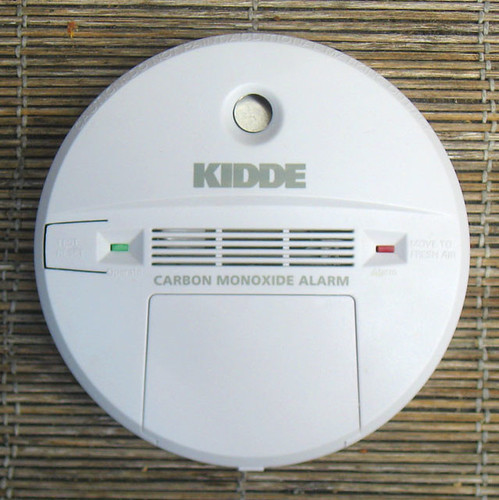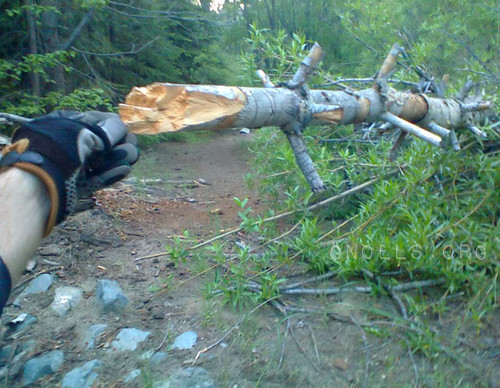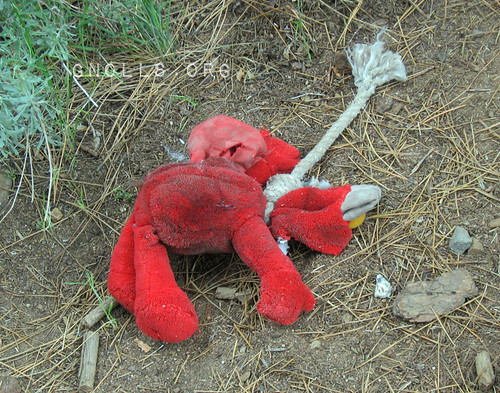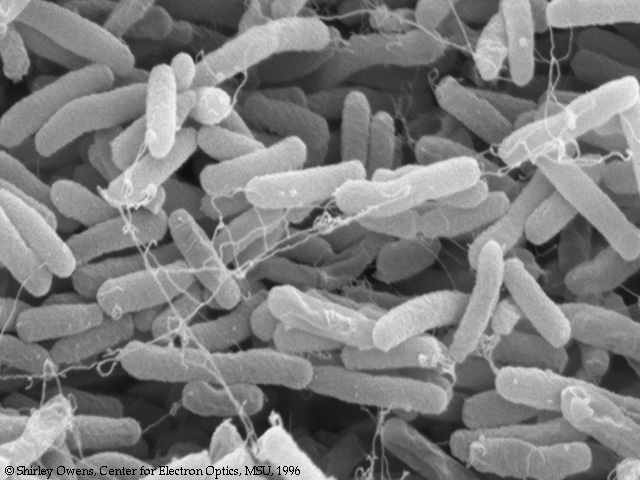Favorite Articles of the Moment
Disclaimer
• Your life and health are your own responsibility.
• Your decisions to act (or not act) based on information or advice anyone provides you—including me—are your own responsibility.
Recent Articles
-
We Win! TIME Magazine Officially Recants (“Eat Butter…Don’t Blame Fat”), And Quotes Me
-
What Is Hunger, and Why Are We Hungry?
J. Stanton’s AHS 2012 Presentation, Including Slides
-
What Is Metabolic Flexibility, and Why Is It Important? J. Stanton’s AHS 2013 Presentation, Including Slides
-
Intermittent Fasting Matters (Sometimes): There Is No Such Thing As A “Calorie” To Your Body, Part VIII
-
Will You Go On A Diet, or Will You Change Your Life?
-
Carbohydrates Matter, At Least At The Low End (There Is No Such Thing As A “Calorie” To Your Body, Part VII)
-
Interview: J. Stanton on the LLVLC show with Jimmy Moore
-
Calorie Cage Match! Sugar (Sucrose) Vs. Protein And Honey (There Is No Such Thing As A “Calorie”, Part VI)
-
Book Review: “The Paleo Manifesto,” by John Durant
-
My AHS 2013 Bibliography Is Online (and, Why You Should Buy An Exercise Physiology Textbook)
-
Can You Really Count Calories? (Part V of “There Is No Such Thing As A Calorie”)
-
Protein Matters: Yet More Peer-Reviewed Evidence That There Is No Such Thing As A “Calorie” To Your Body (Part IV)
-
More Peer-Reviewed Evidence That There Is No Such Thing As A “Calorie” To Your Body
(Part III)
-
The Calorie Paradox: Did Four Rice Chex Make America Fat? (Part II of “There Is No Such Thing As A Calorie”)
-
Interview: J. Stanton on the “Everyday Paleo Life and Fitness” Podcast with Jason Seib
|
As I mentioned at the end of last week’s article, I’m taking a week off to enjoy the summer holidays—and the ridiculous snowpack here in the Sierras, which has allowed me three days of excellent skiing in July.
I’ll be back on my regular weekly schedule next week, but in the meantime, it is important to not die.
How Not To Die While Slow-Roasting A Pork Shoulder (Also Known As A “Pork Butt”)
Earlier this year, I decided to slow-roast a pork butt overnight in the oven. After it had been in for several hours, and just as I was falling asleep, my carbon monoxide alarm went off.
 This carbon monoxide detector saved my life. Winters are cold where I live. In order to be energy-efficient, I weatherstrip my doors and seal the drafts under them. And since my living area has good solar gain in the daytime, the forced-air heater often won’t come on until very late at night.
Apparently, in a well-insulated home or apartment, a gas oven can produce dangerous amounts of carbon monoxide in just a few hours. And since I was just getting ready to fall asleep, it is very likely that without a working carbon monoxide alarm just outside my bedroom, I would not have awakened the next morning.
At this point, I feel it appropriate to thank my mother (who insisted I have one) and the Kidde corporation (whose product still functioned correctly, even past the end of its advertised 5-year service life) for saving my life.
And because being alive is important, I strongly recommend that everyone own a carbon monoxide detector.
Yes, you’ll be irritated when it gives you that “low battery” chirp every nine months or so, and you’ll be annoyed that the batteries don’t last nearly as long as those in your smoke detectors.
You’ll also be alive.
You should be able to find carbon monoxide alarms at your local hardware store. However, if you’d like to support gnolls.org, you can buy them through the following Amazon links. (Plus, in my experience, Amazon is cheaper.)
Available models have changed somewhat since I bought mine: the most recent “Nighthawk” models come with a 7-year guarantee and are UL listed. And as a bonus, they come with batteries!
Here’s the basic unit: Kidde KN-COB-B-LS Carbon Monoxide Alarm. $23 as of this writing.
And here’s the next model up, which has a digital display that shows the actual CO level: Kidde KN-COPP-B-LS Carbon Monoxide Alarm. $35 as of this writing.
(Note that natural gas or propane heater malfunctions can also result in carbon monoxide poisoning, even if you have electric appliances. And a wood or pellet stove can get you if the flue clogs or the vents leak.)
How Not To Die While Riding A Mountain Bike
During the early season, there are often trees down on the trail—especially after spring storms.
Just a few days ago, I was riding a trail for the first time this year. In the middle of a fast and overgrown section with poor sight lines, I suddenly encountered a small fallen tree, whose sharp, splintered end was aimed directly at my chest.
 If I had been going fractionally faster, or been paying less attention, this would have had my corpse stuck to the end of it. I don’t think I’ve ever stopped a bicycle quite that fast—and the sharp end still ripped my glove and cut my fingers as it pushed past, stopping about four inches from my heart.
The moral of this story: Don’t override your line of sight, even on a familiar trail. And always keep your braking system properly adjusted and maintained. Someday you may need every last Newton of force it can provide.
Live in freedom, live in beauty.
JS
I found this by the side of a local trail in the woods:

Yes, that’s a disemboweled Tickle Me Elmo with a noose around its neck.

Americans have become paranoid about germs. We buy billions of dollars of alcohol wipes, hand sanitizers, and antibacterial soaps (even though triclosan has been proven to be both ineffective and a bioaccumulative pollutant…)
Aiello, A.E., Larson, E.L. & Levy, S.B. (2007) Consumer antibacterial soaps: Effective or just risky? Clinical Infectious Diseases, 45:S137-S147.
(Or, a popularized version with more references.)
Here is a typically scary article about “The Germiest Places In America.”
AAAAAA! GERMS EVERYWHERE! AAAAAAAAAAA!
Grim, isn’t it? The first world is apparently one giant, festering reservoir of filth and disease. (One hopes the authors of this article never travel to, say, India…or even the average day-care center.) Now let’s see what our daily life would be like if we used all the suggestions from this article…
- When you enter a hotel room, clean the remote control, phone, clock radio, door handles, and light switches with germicidal wipes.
- Once a week, apply a disinfecting cleaner to the tub and dry the tub with a clean towel.
- Wipe down machines with antibacterial wipes before working out.
- When visiting a park, carry alcohol wipes or hand-sanitizing gel in your purse, and clean everybody’s hands a couple of times during a park visit, especially before snacking. Pick warm sunny days for outdoor play: “The sun’s ultraviolet light is actually a very effective disinfectant.”
- Women: wipe your [purse] down every few days with a mild soap or disinfectant, then let it air dry.
- Carry an alcohol-based hand sanitizer with you and rub it on your hands after a visit to the ATM. Also, be sure to do it after you handle money. “Paper money actually carries quite a few germs, too.”
- Always use a disinfectant wipe on your shopping cart handle… or “Carry along a cart cover, like the Grip-Guard or Healthy Handle, a dishwasher-safe polypropylene cover that fits over any size cart handle.”
Are you starting to feel like Howard Hughes, or like you’ve developed OCD? How many bottles of hand sanitizer can you carry with you at once? You’ll need several just to get through a single day on this program.
- Don’t let your child use the drinking fountain: “Send your child to school with plenty of their own beverages. Teach them to wash their hands, especially before and after lunch, going to the bathroom, or using the computer. Send hand sanitizer to every school teacher and give extras to your child. And when it’s your turn to squeeze into that little desk for Open House? Swab it off with an antibacterial wipe, Gerba says.”
We all know someone like this, don’t we? We try to stay far away from them, and we feel sorry for their kids. Isn’t this sort of paranoid syndrome in DSM-IV?
- Run your washer and dryer at 150ºF, and wash whites with bleach (not the color-safe type; it doesn’t pack the same punch), which kills 99% of bugs. Transfer wet laundry to the dryer quickly so germs don’t multiply, wash underwear separately (there’s about a gram of feces — a quarter the size of a small peanut — in every pair of dirty underwear), and dry for at least 45 minutes. Wash your hands after laundering, and run a cycle of bleach and water between loads to eliminate any lingering bugs.
Suddenly a simple task like “doing laundry” has become an all-afternoon project…not to mention your clothes will be shredded into rags after a few months of this treatment.
Also, “1/4 a small peanut”? Seriously? Whose underwear was in this survey? Laxative addicts? Olestra fiends? I haven’t found a dingleberry in my drawers since I got out of college and could afford to buy toilet paper I couldn’t see through.
- In airplane bathrooms, “After using the toilet, wash and dry your hands thoroughly, and use a paper towel to handle the toilet seat, lid, tap, and doorknob. Put the lid down before you flush. If there’s no lid, turn your back to the toilet while flushing.”
You’re in a tiny airplane cabin with hundreds of other people and a very small reservoir of recirculated air. Whatever they’ve got, you’re already breathing it, including the bathroom air — so calm the heck down, OK?
- Clean your kitchen counters and sink with an antibacterial product after preparing or rinsing food, especially raw fruits and vegetables, which carry lots of potential pathogens like salmonella, campylobacter, and E. coli. … Sanitize sponges by running them through the dishwasher’s drying cycle. As for the sink, clean it twice a week with a solution of one tablespoon of chlorine bleach and one quart of water. Scrub the basin, and then pour the solution down the drain.
We’ve already established that antibacterial soap is useless and ineffective, not to mention bioaccumulative and possibly toxic…wait, clean everything after *rinsing* food? People, if you knew what happened in those restaurant kitchens whose food you blithely eat in nearly every day, you’d crap a brick. Then you’d realize you’re being needlessly paranoid, because none of us are regularly getting sick from restaurant food.
———
Phew! What with all this wiping and cleaning and scrubbing and avoiding, I’m starting to feel a bit exhausted. What was I doing…? That’s right, I was going to grab the alcohol wipes before I touched my computer keyboard and mouse (they’re covered with germs!) but I left them in a drawer and there are germs all over the drawer pull and on the package of wipes…AAAAAAAAA!
Seriously…in order to follow this program, each of us would be using entire bottles of hand sanitizer every day—and we wouldn’t have time to leave our houses anyway, because we would constantly be towel-drying our showers and running empty loads of bleach water through the washing machine. Yet somehow, humans lived, survived, evolved, covered the planet with billions of other humans, and WENT TO THE MOON without ever doing a single one of these things. Somehow, we have all survived to adulthood without being Crazy OCD Hand-Washing Guy or Obsessive Lysol Lady.
Why is that?
Because germs are everywhere. Literally. They’re in the air, on our skin, in our bodies, and on everything we touch unless we are in a sterile operating theater. The reason we don’t all die is because we have this wonderful thing called an immune system—and if we eat well and get enough sleep, our immune system can fight off almost any germ the world can throw at us…
…because for uncounted millions of years, starting long before humans were human, anyone whose immune system lost to the germs DIED.
We are the descendants of millions of generations of creatures who survived bacilli, cocci, spirochetes, viruses, prions, nematodes, flukes and worms. We survived countless infections, infestations, and epidemics. And the more stressed we get about the sources of germs all around us, the more susceptible we are to sickness and disease—because cortisol (our stress hormone) is immunosuppressive, as is losing sleep over something that’s everywhere anyway.
Yes, we should wash our hands after using the toilet. No, we shouldn’t cough or sneeze on other people, nor on their food. Yes, sterile medical practice is the biggest lifesaver in the history of the medical profession (even more so than vaccination), and we should all give Ignaz Semmelweiss* a posthumous nod of thanks…
But don’t be one of Those People…because that fortress of alcohol wipes isn’t what is keeping you healthy. Your immune system is what’s keeping you healthy, and you’ll live a longer and happier life if you spend your time eating well, exercising daily, and getting enough sleep instead of worrying about who touched the shopping cart handle before you.
Live in freedom, live in beauty.
JS
(* Semmelweiss was hounded into insanity by the medical profession’s refusal to believe that doctors should wash their hands between dissecting corpses and birthing children or performing surgery. His lifesaving sterile practices were only widely accepted well after his death.)
|
“Funny, provocative, entertaining, fun, insightful.”
“Compare it to the great works of anthropologists Jane Goodall and Jared Diamond to see its true importance.”
“Like an epiphany from a deep meditative experience.”
“An easy and fun read...difficult to put down...This book will make you think, question, think more, and question again.”
“One of the most joyous books ever...So full of energy, vigor, and fun writing that I was completely lost in the entertainment of it all.”
“The short review is this - Just read it.”
Still not convinced?
Read the first 20 pages,
or more glowing reviews.
Support gnolls.org by making your Amazon.com purchases through this affiliate link:

It costs you nothing, and I get a small spiff. Thanks! -JS
.
 Subscribe to Posts Subscribe to Posts
|
Gnolls In Your Inbox!
Sign up for the sporadic yet informative gnolls.org newsletter. Since I don't update every day, this is a great way to keep abreast of important content. (Your email will not be sold or shared.)
IMPORTANT! If you do not receive a confirmation email, check your spam folder.
|





